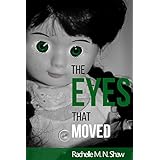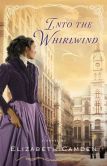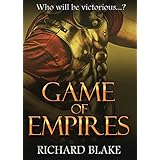
Review of The Secret Life of Anna Blanc by Jennifer Kincheloe
Overview from www.barnesandnoble.com: It's 1907 Los Angeles. Mischievous socialite Anna Blanc is the kind of young woman who devours purloined crime novels—but must disguise them behind covers of more domestically-appropriate reading. She could match wits with Sherlock Holmes, but in her world women are not allowed to hunt criminals.
Determined to break free of the era's rigid social roles, Anna buys off the chaperone assigned by her domineering father and, using an alias, takes a job as a police matron with the Los Angeles Police Department. There she discovers a string of brothel murders, which the cops are unwilling to investigate. Seizing her one chance to solve a crime, she takes on the investigation herself.
If the police find out, she'll get fired; if her father finds out, he'll disown her; and if her fiancé finds out, he'll cancel the wedding and stop pouring money into her father's collapsing bank. Midway into her investigation, the police chief's son, Joe Singer, learns her true identity. And shortly thereafter she learns about blackmail.
Anna must choose—either hunt the villain and risk losing her father, fiancé, and wealth, or abandon her dream and leave the killer on the loose.
My Review:
I am happy to be with you again to share my thoughts
about my last piece of fiction. This week I review The Secret Life of Anna Blanc by Jennifer Kincheloe.
It features a main character who is a well-known Los
Angeles socialite at the turn of the century, but that’s not all she is. As the
title suggests, Anna Blanc has a secret, a whole secret other life, under the
name of Matron Holmes.
Her love of playing detective and the chance for
excitement get the best of her. After a failed attempt at marriage, her father
literally catches her immediately after marrying someone he does not approve,
another man miraculously wants her for himself and his money is something that
her father can’t refuse.
After being arrested as a suffragette, Anna becomes obsessed
with the idea of having a job as police matron, something that she knows her
father and fiancé won’t approve of. When a positon opens up at the LAPD though,
she knows that she can’t let that stand in her way. So she bribes her chaperon
to look the other way, tells her new boss that she is a married woman, and gets
a job as Matron Holmes.
When she visits a brothel one day, she discovers
that prostitutes are being murdered on a regular basis and vows to herself to
solve the crime. Meanwhile it becomes more difficult by the day to keep her
double life a secret from her father, her friend, and her fiancé.
My overall analysis on this was is that it is a
great story. It is nice to see a strong and independent female character from this
time period. The author handles the tie-in with the suffragettes nicely.
Also the ending was something of surprise for me.
Don’t worry, I am not going to give anything away but the mystery itself was
interesting though I think the most interesting part of the story for me was
Anna story as a girl who was ruined only to be “saved” again by the attentions
of Edgar Wright who then decides to risk everything to help solve a crime that
the police seem to ignore.
In the end, Anna also proves herself a capable
detective in her own right who is able to make decisions for herself. It would
really be nice if this story became a series complete with more mysteries to
solve.
On the downside, some readers might find the mystery
slow going initially but for me, that part of the story was just as interesting
as the mystery. I appreciate the way the author tackled a time period that does
not seem to appear much in historical fiction. It reminded me of some of the
stories that my grandfather used to tell me in some ways.
I enjoyed it and would recommend it to anyone
interested in historical fiction, particularly if he or she also likes a good
mystery. The background about Los Angeles during this period as well as the
Arrow Collar man is fascinating in and of itself. I am hoping someday to score
an interview with author about that but in the meantime pick up a copy and read
it for yourself.
Contains:
language,
some sexual situations










